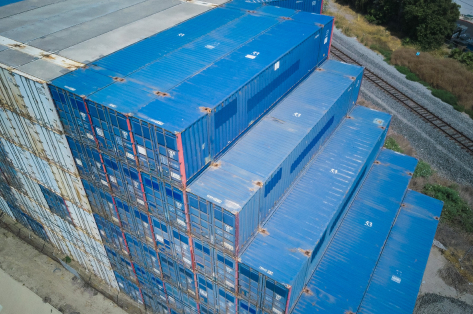
Get the latest industry news, insights, opinion, advice and best practice from our team of experts.

Artificial intelligence (AI) and automation are revolutionizing the logistics industry by enhancing efficiency, reducing costs, and improving customer satisfaction. The impact of these technologies is profound and multifaceted, affecting various aspects of logistics operations:
1. Optimized Supply Chain Management
AI and automation enable more efficient supply chain management through advanced data analytics, predictive modeling, and real-time monitoring. These technologies help logistics companies forecast demand, manage inventory, and optimize routes, leading to reduced lead times and lower costs.
2. Improved Warehousing Operations
Automation in warehouses includes the use of robotic systems for picking, packing, and sorting goods. AI-driven warehouse management systems (WMS) optimize storage space and streamline inventory management. Automated guided vehicles (AGVs) and autonomous mobile robots (AMRs) enhance the speed and accuracy of warehousing tasks, reducing human labor and error.
3. Enhanced Transportation Efficiency
AI algorithms optimize transportation routes and schedules by analyzing traffic patterns, weather conditions, and other variables. This leads to reduced fuel consumption, shorter delivery times, and cost savings. Autonomous trucks and delivery drones are becoming more common, further improving the efficiency and reliability of transportation.
4. Predictive Maintenance
AI-powered predictive maintenance systems monitor the condition of vehicles and equipment in real-time, predicting potential failures before they occur. This proactive approach minimizes downtime, extends the lifespan of assets, and reduces maintenance costs. IoT sensors collect data on various parameters, which AI algorithms analyze to identify patterns indicative of impending issues.
5. Enhanced Customer Experience
AI and automation improve customer satisfaction by providing real-time tracking, personalized delivery options, and proactive communication. Chatbots and virtual assistants handle customer inquiries and support, offering 24/7 service and freeing up human agents for more complex tasks. Predictive analytics help companies anticipate customer needs and preferences, offering tailored solutions.
6. Increased Safety and Security
Automation and AI enhance safety and security in logistics operations. Autonomous vehicles reduce the risk of accidents caused by human error. AI-powered surveillance systems monitor warehouses and transport networks, detecting and responding to security threats in real-time. Blockchain technology, often integrated with AI, ensures the integrity and traceability of goods throughout the supply chain.
7. Reduced Operational Costs
The implementation of AI and automation reduces labor costs by automating repetitive and time-consuming tasks. Efficiency gains from optimized processes and predictive maintenance lower operational expenses. These cost savings can be passed on to customers, making logistics services more competitive.
8. Data-Driven Decision Making
AI enables logistics companies to make data-driven decisions by analyzing vast amounts of data from various sources. This includes customer behavior, market trends, and operational performance. Insights gained from AI analytics help companies identify opportunities for improvement, optimize their strategies, and stay ahead of the competition.
9. Sustainability and Environmental Impact
AI and automation contribute to more sustainable logistics operations. Optimized routing and efficient warehouse management reduce fuel consumption and emissions. Autonomous electric vehicles and drones offer environmentally friendly alternatives to traditional transportation methods. AI also aids in designing more sustainable supply chains by identifying areas to reduce waste and energy consumption.
10. Scalability and Flexibility
Automation and AI provide the scalability and flexibility needed to adapt to changing market demands. Automated systems can easily scale up or down based on demand fluctuations, ensuring that logistics operations remain efficient and cost-effective. This flexibility is crucial for handling peak periods, such as holiday seasons or sudden spikes in e-commerce activity.
Conclusion
The integration of AI and automation in the logistics industry is driving significant advancements in efficiency, cost reduction, and customer satisfaction. These technologies are reshaping traditional logistics operations, enabling companies to operate more sustainably, securely, and flexibly. As AI and automation continue to evolve, their impact on the logistics industry will only grow, offering new opportunities for innovation and improvement.